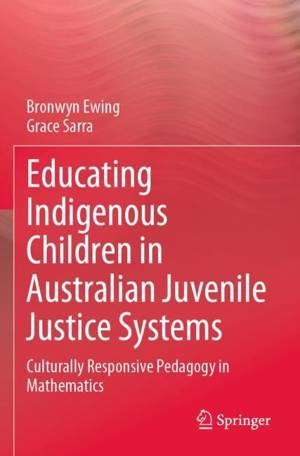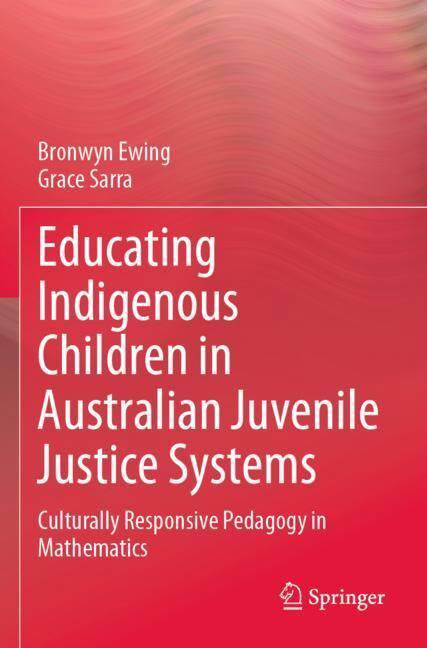
- Afhalen na 1 uur in een winkel met voorraad
- Gratis thuislevering in België
- Ruim aanbod met 7 miljoen producten
- Afhalen na 1 uur in een winkel met voorraad
- Gratis thuislevering in België
- Ruim aanbod met 7 miljoen producten
Educating Indigenous Children in Australian Juvenile Justice Systems
Culturally Responsive Pedagogy in Mathematics
Bronwyn Ewing, Grace SarraOmschrijving
This book addresses key issues in the context of the national policy of educating children accused of crimes in Juvenile Courts in Australia. For several decades, National and State Governments in Australia have struggled to define education, constantly seeking to improve the way society applies the concept. This book presents an accurate portrayal of consequences of the education policy of trying to educate troubled children and young people in trouble with the law. It describes the work of juvenile detention centre mathematics teachers and their teaching contexts. It portrays teachers as learners, who ventured with researchers with a theoretical perspective. This book focuses on culturally responsive pedagogies that seek to understand the ways Indigenous children and young people in juvenile detention make sense of their mathematical learning, which, until the time of detention, has been plagued by failure. It examines how the underperformance of Aboriginal andTorres Strait Islander students, and students from low socioeconomic backgrounds are strong determinants of their overrepresentation in the juvenile justice system in Australia. This book presents the argument that if the students' literacy and numeracy levels can be improved, there is opportunity to build better futures away from involvement in the juvenile justice system and towards productive employment to improve life chances.
Specificaties
Betrokkenen
- Auteur(s):
- Uitgeverij:
Inhoud
- Aantal bladzijden:
- 132
- Taal:
- Engels
Eigenschappen
- Productcode (EAN):
- 9789811986864
- Verschijningsdatum:
- 8/02/2024
- Uitvoering:
- Paperback
- Formaat:
- Trade paperback (VS)
- Afmetingen:
- 156 mm x 234 mm
- Gewicht:
- 226 g

Alleen bij Standaard Boekhandel
Beoordelingen
We publiceren alleen reviews die voldoen aan de voorwaarden voor reviews. Bekijk onze voorwaarden voor reviews.












